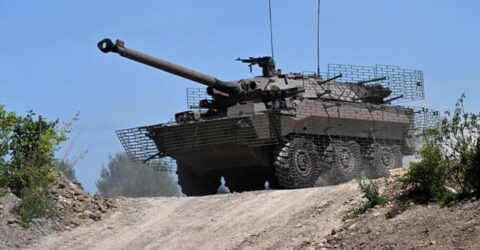
DUBAI : Iranians voted Friday in a presidential election dominated by Supreme Leader Ayatollah Ali Khamenei’s hard-line protege after the disqualification of his strongest competition, fueling apathy that left some polling places largely deserted despite pleas to support the Islamic Republic at the ballot box, reports UNB.
Opinion polling by state-linked organizations, along with analysts, indicated that judiciary chief Ebrahim Raisi – who already is under U.S. sanctions – was the front-runner in a field of only four candidates. Former Central Bank chief Abdolnasser Hemmati is running as the moderate candidate but hasn’t inspired the same support as outgoing President Hassan Rouhani, who is term-limited from seeking the office again.
As night fell, turnout appeared far lower than in Iran’s last presidential election in 2017. At one polling place inside a mosque in central Tehran, a Shiite cleric played soccer with a young boy as most of its workers napped in a courtyard. At another, officials watched videos on their mobile phones as state television blared beside them, offering only tight shots of locations around the country – as opposed to the long, snaking lines of past elections.
Balloting came to a close at 2.a.m. Saturday, after the government extended voting to accommodate what it called “crowding” at several polling places nationwide. Paper ballots, stuffed into large plastic boxes, were to be counted by hand through the night, and authorities said they expected to have initial results and turnout figures Saturday morning at the earliest.
“My vote will not change anything in this election, the number of people who are voting for Raisi is huge and Hemmati does not have the necessary skills for this,” said Hediyeh, a 25-year-old woman who gave only her first name while hurrying to a taxi in Haft-e Tir Square after avoiding the polls. “I have no candidate here.” Iranian state television sought to downplay the turnout, pointing to the Gulf Arab sheikhdoms surrounding it ruled by hereditary leaders and the lower participation in Western democracies. After a day of amplifying officials’ attempts to get out the vote, state TV broadcast scenes of jam-packed voting booths in several provinces overnight, seeking to portray a last-minute rush to the polls.
But since the 1979 revolution overthrew the shah, Iran’s theocracy has cited voter turnout as a sign of its legitimacy, beginning with its first referendum that won 98.2% support that simply asked whether or not people wanted an Islamic Republic.
The disqualifications affected reformists and those backing Rouhani, whose administration both reached the 2015 nuclear deal with world powers and saw it disintegrate three years later with then-President Donald Trump’s unilateral withdrawal of America from the accord. Former hard-line President Mahmoud Ahmadinejad, also blocked from running, said on social media he’d boycott the vote.
Voter apathy also has been fed by the devastated state of the economy and subdued campaigning amid months of surging coronavirus cases. Poll workers wore gloves and masks, and some wiped down ballot boxes with disinfectants.
If elected, Raisi would be the first serving Iranian president sanctioned by the U.S. government even before entering office over his involvement in the mass execution of political prisoners in 1988, as well as his time as the head of Iran’s internationally criticized judiciary – one of the world’s top executioners.




